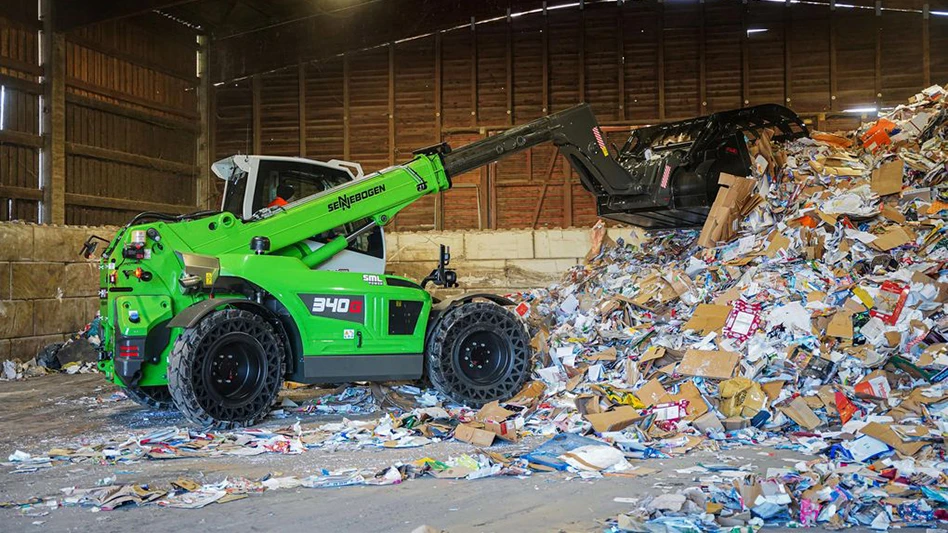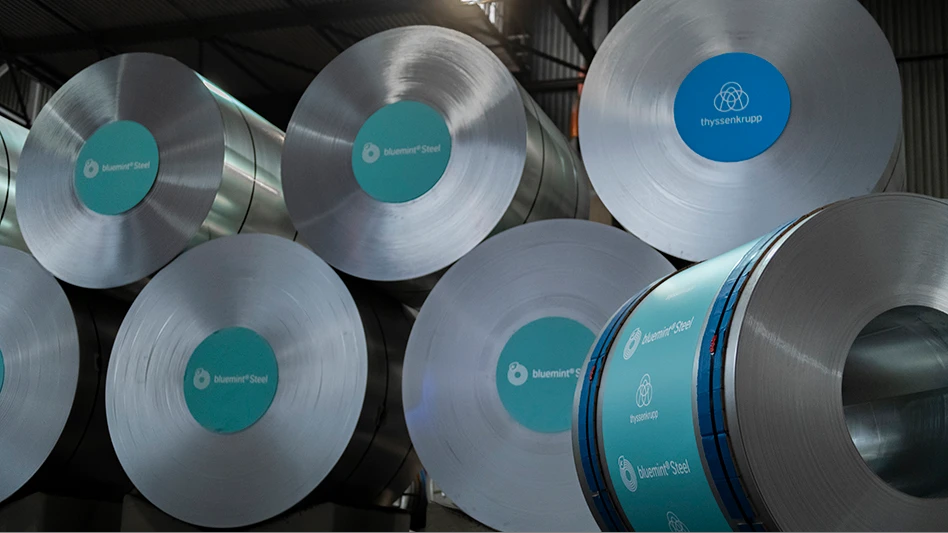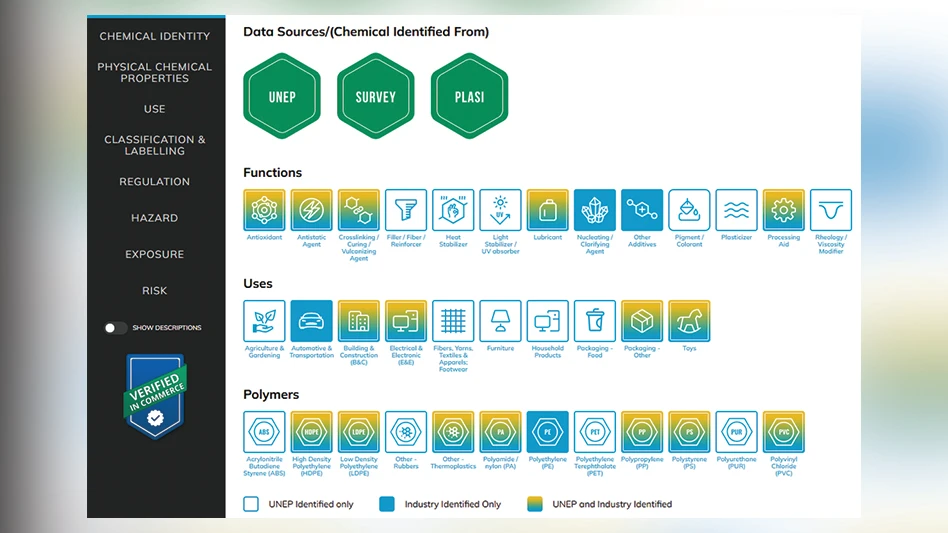 Anyone tracking the ferrous scrap market during the past several years likely has seen extreme volatility in pricing. For ferrous scrap consumers, especially electric arc furnace (EAF) operators dependent on ferrous scrap for a majority of their raw material intake, purchasing large blocks of raw material on a monthly basis when prices may swing significantly can play havoc with their balance sheets.
Anyone tracking the ferrous scrap market during the past several years likely has seen extreme volatility in pricing. For ferrous scrap consumers, especially electric arc furnace (EAF) operators dependent on ferrous scrap for a majority of their raw material intake, purchasing large blocks of raw material on a monthly basis when prices may swing significantly can play havoc with their balance sheets.
To mitigate the negative effects of fluctuations, a number of companies are promoting the use of financial tools such as swaps and derivatives they claim can help smooth out ferrous scrap pricing. For some ferrous scrap consumers, the opportunities are appealing.
London Calling
One source touting the notion of a more stable, consistent purchasing approach is Freight Investor Services (FIS), a London- and St. Louis-based company that works as a broker to parties considering using swaps and derivatives to hedge the monthly purchases of ferrous scrap.
Despite the negative connotations these terms may have in the financial market currently, what FIS offers, according to advocates of the service, can help steel companies smooth out their buying prices.
FIS uses index numbers compiled by The Steel Index (TSI), a London-based provider of price information for finished steel, iron ore and ferrous scrap. TSI says it compiles frequent, impartial reference prices for what it describes as an increasingly volatile ferrous market.
TSI says it has been working to provide the ferrous scrap industry with a transparent way to track obsolete scrap prices. While far from being universally embraced, the company says it is starting to make progress with its indexing programs, designed to ultimately provide a way for companies to begin using swaps to buy and sell ferrous scrap, as has happened for hot-rolled coil steel.
While TSI has been promoting its index prices as a way to better gauge pricing trends, FIS acts to bring two parties together for transactions for its European steel and scrap contracts.
In an article in MetalMiner, Tim Hard, a representative with TSI, advises that the swaps market faces early adopter syndrome. He says roughly 90 percent of the industry does not know scrap swaps exist, despite the fact that the industry operates in a volatile market with considerable medium-to-long-term price uncertainty for ferrous scrap.
As a contradiction, the article states that many of these same companies are aware of the success of the iron ore swaps market in providing price hedging for those involved in this material for the basic oxygen furnace production route. October has seen more than 9 million metric tons of iron ore swaps cleared.

Hard says producers are waiting to use the service, though he acknowledges that the liquidity level is not huge, "although it is not falling away," he adds.
While the structure may be intimidating, Hard, who was one of the speakers at the ISRI Commodities Roundtable Forum in Chicago in September of 2011, says some of these tools are simple to understand.
As an example, he says most home mortgages are essentially a swap. He uses as an example a conventional mortgage rate. "I have a fixed interest rate of 3.69 percent until 2016," says Hard. "This means I don't have an unknown 'floating' rate. A scrap swap is just the same. I could lock in a 'known' price for next month, rather than the floating 'unknown' figure of what the price will turn out to be next month. It is exactly the same principle. These types of swaps are so simple they are known as 'vanilla'–the only variable is the price." He continues, "If people want to know what the swaps prices for the impending future are, they look to the forward curve, which is made up of the average position of opinion for the price level they are prepared to trade at for each calendar month."
Comfort Zones
As simple as this method may be, Hard concedes that the scrap industry has been somewhat reluctant to embrace this tool. "Futures in steel markets have had a bad name, but it is getting better," he says. "At first people hated the idea, but there is a sea change taking place."
An example of this comes in the form of comments by Worthington Inc. CEO John McConnell to the Association of Steel Distributors in October 2011. "When volatility got introduced . . . it cries out for these tools. We use a number of tools—hedging is one of them…It takes volatility out of our markets. I think more customers are looking into it," McConnell said.
 One advantage to the index price, according to TSI, is that it is based on far more price inputs than other price-tracking services. FIS also says its index undergoes a more rigorous algorithmic process and reacts faster to changes in the scrap market relative to other price-tracking services.
One advantage to the index price, according to TSI, is that it is based on far more price inputs than other price-tracking services. FIS also says its index undergoes a more rigorous algorithmic process and reacts faster to changes in the scrap market relative to other price-tracking services.
FIS says a big step to making scrap swaps more valuable to the steel industry has been the introduction of TSI's daily Turkish Export Scrap Index. Previously, TSI was publishing its Turkish imports of HMS (heavy melting steel) No. 1 and No. 2 80:20 scrap reference price weekly. However, TSI says it moved the index to a daily price because of industry demand for more frequent scrap price information.
In a statement following the introduction of the daily index, Sam Mehew, a senior steel and scrap derivatives broker with FIS, comments, "The introduction of a daily reference pricing mechanism on the TSI Turkish scrap is a valuable complement to the daily TSI iron ore and daily European HRC (hot-rolled coil steel) markets. In order to capture the intra-week volatility of the scrap market, a daily price is an absolute necessity. Improved price transparency will increase industry confidence in this growing derivatives market."
So what is a swap? It is essentially a contractual agreement between two parties to settle the difference in cash between a price agreed on one day for a particular commodity for a specific period in the future at an actual price of the commodity during that period as determined by a particular index. Simply put, a swap is a price guarantee.
According to TSI, scrap steel swaps offer the opportunity for companies to minimize financial risk and/or gain a competitive advantage.
The swaps also involve a company taking a position in a futures market as a substitute for a forward cash transaction. They are over-the-counter, cash-settled contracts with no physical delivery. Swaps are contractual agreements brokered between two counterparties to settle the difference, in cash, between a price agreed on today for ferrous scrap during a specified period in the future (e.g., calendar year 2012) and the actual price of the commodity during that period, as determined by TSI's Turkish Scrap Index.
An example of how a swap would work in the scrap industry follows:
It is June 2011, and the spot price of ferrous scrap is $444 per metric ton. Company A (a scrap buyer) thinks the price of scrap is going up and will average higher than $460 per ton in 2012. Company B (a scrap seller) disagrees and thinks the price will be lower than $460 per ton in 2012.
Since both counterparties are confident in their views, a swap contract for 2012 with a price of $460 per ton is agreed upon. They decide to review the average of the index at the end of 2012.
For every dollar that the average index price for 2012 is higher than $460 per ton, Company B pays Company A $1, but for every $1 it is less than $444, Company A pays Company B $1.
On Jan. 1, 2013, the weekly values for 2012 are averaged and the actual average is determined as $465. Company B then pays Company A the difference between the price, in this case $5 per ton. Company A hedged effectively, and while company B paid $5 for every ton to company A, it is $5 per ton better off on each of its physical market transactions.
Clearinghouse
To complete the transactions, a derivatives broker such as FIS would use an independent clearinghouse group that serves international exchanges and platforms, such as LCH.Clearnet, London.
 The clearinghouse sits in the middle of a trade, taking on the counterparty risk involved when two parties trade. When the trade is registered with the clearinghouse, it becomes the legal counterparty to the trade, ensuring the financial performance. If one of the parties fails, the counterparty steps in. By assuming the counterparty risk, LCH.Clearnet's activity is designed to underpin financial markets, facilitating trading and increasing confidence within the market.
The clearinghouse sits in the middle of a trade, taking on the counterparty risk involved when two parties trade. When the trade is registered with the clearinghouse, it becomes the legal counterparty to the trade, ensuring the financial performance. If one of the parties fails, the counterparty steps in. By assuming the counterparty risk, LCH.Clearnet's activity is designed to underpin financial markets, facilitating trading and increasing confidence within the market.
In the case of LCH.Clearnet, the agency has been named as the independent clearing service for over-the-counter steel swaps contracts settled against the TSI (for the European and Turkish Scrap contracts) as well as for the Cleartrade China Steel Index (for Chinese contracts).
LCH.Clearnet's first ferrous scrap swap was cleared in April 2011. After clearing the swap, TSI's Hard said, "We are delighted to have seen the first trade for ferrous scrap take place on the LCH. This is an important moment for the scrap and steel industries.
He continued, "Scrap forms the bulk of input costs for electric-arc-furnace-based steel producers and sees notorious price volatility. A tool which can lower the costs of borrowing for scrap producers and processors and provide price-certainty for EAF producers should be welcomed. This has positive implications for the scrap, billet and rebar markets," Hard concluded.
While the initial swap was small, advocates of the service say trades will increase significantly. According to comments printed in MetalMiner, FIS says it believes trades will increase to 200,000 tons per month before the end of 2011, with typical deal sizes in the 1,000-to-25,000-ton range. Although early 5,000-to-10,000-ton trades were for the prompt-to-three-month time frame, the market is already developing out to the third and fourth quarter, with some trades already into 2012, according to FIS.
While early activity was from trading houses, steel mills in Greece and Turkey have now become active in the market, according to reports, with strong interest being shown by some U.S. scrap metal dealers.
"We are very pleased to have executed the first ferrous scrap contract," comments Arthur Worsley, a scrap derivatives broker with FIS, in an LCH.Clearnet news release announcing the initial trade. "With more trades in the pipeline," he continues, "we expect the first participation from a steel mill to come very soon and liquidity to increase at a healthy rate."
Mehew of FIS adds, "With increasing volatility in scrap prices, we have seen growing demand for a swaps contract that can mitigate risks faced by the steel industry. As long-run, fixed-price steel contracts become increasingly unworkable, cash-settled swaps contracts promise to allow a more transparent and cheaper method of securing long-term flexible pricing for the industry."
The author is senior and Internet editor of Recycling Today and can be contacted at dsandavol@gie.net.

Explore the November 2011 Issue
Check out more from this issue and find your next story to read.
Latest from Recycling Today
- Harsco brands slag-content asphalt as SteelPhalt
- ArcelorMittal puts French EAF conversions on hold
- Associations ask for effective EPR to drive textile circularity in Europe
- GESA report claims 72 countries recycled EPS in 2023
- Report: Saica exploring recycled paper mill project in Dayton, Ohio
- Hydro’s Alumetal to meet 15 percent of its energy demands through solar
- CSA Group publishes standard defining plastics recycling in Canada
- Second Cyclyx Circularity Center to be located near Fort Worth, Texas





